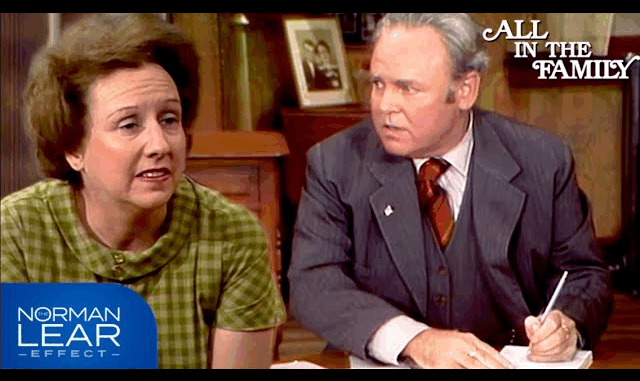
When All in the Family first aired on CBS in January 1971, it did more than entertain — it ignited conversations, challenged societal norms, and redefined what television could be. Over five decades later, the Norman Lear-created sitcom continues to be hailed as one of the most daring and revolutionary shows in American TV history.
At the heart of the show was Archie Bunker, played masterfully by Carroll O’Connor — a blue-collar, conservative, and unapologetically prejudiced man who embodied the anxieties and biases of a changing America. Across from him was his liberal son-in-law, Mike “Meathead” Stivic (Rob Reiner), representing the younger, more progressive generation. Their nightly debates around the kitchen table became a microcosm of America’s cultural wars during the 1970s.
What made All in the Family truly special was its fearless approach to taboo topics. Racism, sexism, homosexuality, the Vietnam War, women’s rights, and even rape — no issue was off-limits. While most shows at the time played it safe, All in the Family leaned into the discomfort, forcing audiences to confront the realities of the world around them. Yet it never did so without heart or humor. The writing balanced sharp satire with genuine moments of emotion, making it possible for viewers to laugh one moment and reflect deeply the next.
The show’s honesty struck a chord. It consistently topped the Nielsen ratings, becoming the number one show in America for five consecutive years. More importantly, it sparked national conversations — at dinner tables, in classrooms, and in political circles — about what kind of country America was, and what it could become.
Norman Lear, the show’s creator, once said, “Television can do more than entertain. It can illuminate.” All in the Family didn’t just illuminate — it exposed, educated, and evolved a medium that had often shied away from controversy.
Its legacy lives on in countless shows that have followed its trail — from The Simpsons and Roseanne to The Office and Black-ish. But few have matched its rawness, its timing, or its courage.
In today’s era of divided politics and culture wars, All in the Family remains a reminder of television’s potential power — not just to reflect society, but to question it.